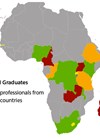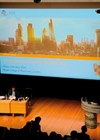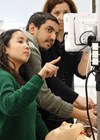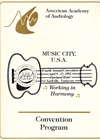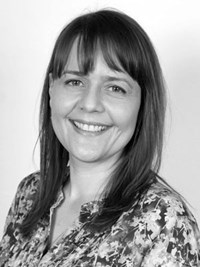Trainee Matters
Starkey Hearing Institute - Zambia: Bridging the Hearing Health Access Gap in Sub-Saharan Africa
Here, we continue exploring audiology training routes across the world with a focus on bridging the Hearing Health Access Gap in Sub-Saharan Africa. This article is provided by Alfred Mwamba, AuD, who is the Executive Director for the Starkey Hearing...
Trainee-led collaborative research and audit in ENT: where are we now?
In late 2015 INTEGRATE, the UK ENT Trainee Research Network, was formed. Since then, two national projects have been completed and INTEGRATE has grown into a larger, more structured organisation, with otology, head and neck and rhinology subcommittees working alongside...
Multidisciplinary airway simulation workshops: ‘preparing your team for the difficult airway’
Can human factor issues be better addressed within a multidisciplinary learning environment? Would this improve team working and patient outcomes? Are these important training considerations? Mona Thornton discusses the experience of a multidisciplinary simulation airway workshop in the unit she...
Pathways for becoming an audiologist in the USA: Part 2. Academic and licensure requirements today
Part 1 of this topic is available here. Professor Hall reviews current requirements for practising audiology in the USA; audiologists must have a Doctor of Audiology degree from an accredited university programme and a licence in the state where they...
The AuD at Salus University: a Capstone Experience
Here, we continue exploring audiology training routes across the world with a focus on distance learning opportunities. This article is provided by Karen Myers who completed the Doctor of Audiology (AuD) Online Bridge programme at Salus University. Completing the International...
Mentorship and its role in surgical training
Is there a principle which could help address multiple challenges in surgical training? One which has potential to improve recruitment and retention of staff to our specialty, quality of patient care and surgeon morale? Harry Spiers, an Academic Foundation Doctor...
Pathways for becoming an audiologist in the USA Part 1: the early years
Part 2 of this topic is available here. The Doctor of Audiology degree is required for clinical practice in the USA. In part one of a two-part series, Professor Hall reviews the evolution of academic credentialing for American audiologists, beginning...
Global health missions – not just for consultants. A guide for trainees.
Lulu Ritchie is a courageous and driven trainee in London, inspired by humanitarian missions but conscious of the usual requests for consultant level doctors. Lulu didn’t let that hold her back. She found a way and has kindly summarised her...
Audiology training in Australia
There are many different ways to become an audiologist throughout the world and it is interesting to see how different some of the training routes can be. Wayne Wilson, an Associate Professor and the Head of Audiology at The University...
Medical training initiative (MTI): stepping outside the box
Medical training initiative (MTI) scheme in the UK are becoming increasingly available and are actively supported by ENT UK. Despite this, knowledge of them is limited and there can be a mismatch between supervisors and potential candidates. Our authors, Manuela...
The European School of Interdisciplinary Tinnitus
Scientific careers in tinnitus are expanding beyond any single discipline to embrace interdisciplinary collaboration and knowledge exchange. Natalia Trpchevska and Christopher R Cederroth present an overview of an innovative EU-funded training programme called the ‘European School of Interdisciplinary Tinnitus’, and...
Less than full time training: the best of both worlds!
Every one of us can feel the pressures of competing interests of everyday life and commitment to our careers. This can be even more difficult when bringing up a young family, especially when we have had to move away from...


